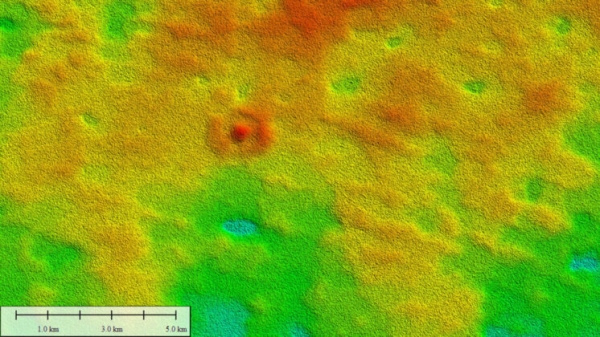Research author Dr Milo Barham, from the Timescales of Mineral Systems Group within Curtin’s School of Earth and Planetary Sciences said the finding further challenged the understanding that the Nullarbor Plain, which emerged from the ocean about 14 million years ago, was essentially flat and featureless.
“Unlike many parts of the world, large areas of the Nullarbor Plain have remained largely unchanged by weathering and erosion processes over millions of years, making it a unique geological canvas recording ancient history in remarkable ways,” Dr Barham said.
“Through high-resolution satellite imagery and fieldwork we have identified the clear remnant of an original sea-bed structure preserved for millions of years, which is the first of this kind of landform discovered on the Nullarbor Plain.
“The ring-shaped ‘hill’ cannot be explained by extra-terrestrial impact or any known deformation processes but preserves original microbial textures and features typically found in the modern Great Barrier Reef.”
Read More: Curtin University
A satellite image of the ring-shaped structure on the Nullarbor Plain. (Photo Credit: Curtin University)


